MercoPress. South Atlantic News Agency
Latin America
-
Wednesday, November 12th 2025 - 19:44 UTC
Paraguay launches Operation Guaraní Shield against transnational criminal groups
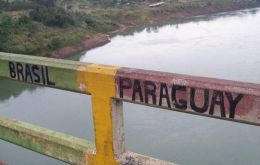
Paraguayan authorities activated this week the first phase of a massive deployment of its Armed Forces along its borders with Brazil, Argentina, and Bolivia, launching Operation “Guarani Shield” to contain transnational criminal organizations.
-
Wednesday, November 12th 2025 - 10:15 UTC
Disruptions in Chilean air travel projected amid Latam Airlines pilots' strike

A strike announced by the Latam Pilots Union (SPL) began at midnight after negotiations with the airline failed, leading to an immediate disruption of scheduled flights. The action is unprecedented for the union, which represents nearly 500 pilots—more than half of the company's total pilot workforce.
-
Tuesday, November 11th 2025 - 08:43 UTC
Colombian prosecutors file new charges against President's son

Six new criminal charges were filed on Monday against Nicolás Petro Burgos, the eldest son of Colombian President Gustavo Petro, stemming from an alleged corruption scheme during his tenure as a deputy in the Atlántico Departmental Assembly.
-
Monday, November 10th 2025 - 10:57 UTC
Rodrigo Paz sworn in as Bolivia's new President
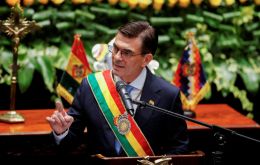
Rodrigo Paz Pereira, a 58-year-old center-right politician, was inaugurated as the President of Bolivia on Saturday, assuming a five-year mandate amid a severe economic crisis. The son of former President Jaime Paz Zamora won the Oct. 19 runoff with 54.5% of the vote, successfully ending two decades of dominance by the leftwing Movement Towards Socialism (MAS).
-
Monday, November 10th 2025 - 10:45 UTC
Low Attendance and Diplomatic Tensions at EU-Celac Summit

The fourth summit between the European Union (EU) and the Community of Latin American and Caribbean States (Celac) kicked off on Sunday in the Colombian city of Santa Marta, amid significant diplomatic friction and a noticeable lack of high-level engagement from both blocs.
-
Monday, November 10th 2025 - 10:26 UTC
French minister vows to block EU-Mercosur FTA out of concern for its farmers
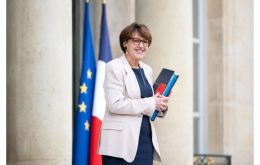
France has once again cast a negative note on the proposed Free Trade Agreement between the European Union (EU) and the Southern Common Market (Mercosur). Agriculture Minister Annie Genevard stated emphatically that her country would not sign a deal that “condemns its farmers.”
-
Saturday, November 8th 2025 - 10:35 UTC
Bolivia: Arce blasts Evo in farewell message
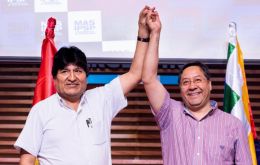
Outgoing Bolivian President Luis Arce Catacora delivered his final address to the nation from the Casa Grande del Pueblo on Friday morning, launching a blistering attack on former President Evo Morales, whom he squarely blamed for the electoral defeat and the current state of the nation's political movement.
-
Saturday, November 8th 2025 - 10:00 UTC
Dorgathen resigns as YPFB chief as Bolivia's fuel crisis deepens

Armin Dorgathen Tapia has submitted his irrevocable resignation as Executive President of Yacimientos Petrolíferos Fiscales Bolivianos (YPFB), the state-owned oil company, effective Friday. His departure comes amidst growing controversy surrounding the Botrading case and just hours before the inauguration of President-elect Rodrigo Paz.
-
Friday, November 7th 2025 - 12:08 UTC
Áñez released from prison - consequences for judges incarcerating her expected
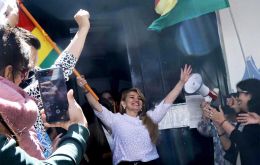
Upon her release from the Miraflores prison on Thursday, Former Bolivian President Jeanine Áñez pointed out that the political “monster” had to be defeated for her to be freed after nearly five years, and the truth of the 2019 crisis recognized.
-
Friday, November 7th 2025 - 12:01 UTC
Top IMF economist reviews Western Hemisphere's economic situation

In an interview with Asunción's Última Hora, Nigel Chalk, Director of the Western Hemisphere Department at the International Monetary Fund (IMF), highlighted the importance of fiscal consolidation and structural reforms to bolster resilience and growth potential, particularly amid shifting global conditions. The interview coincided with the launch of the IMF's Economic Outlook for the Americas report.
